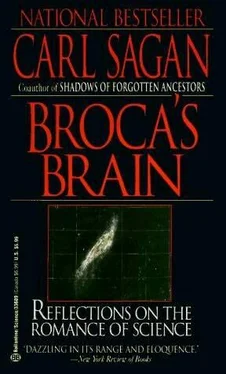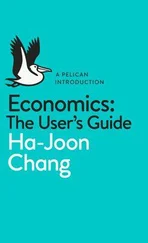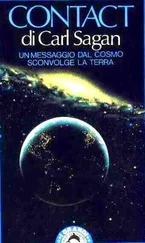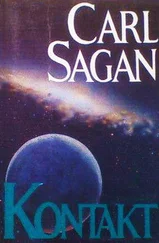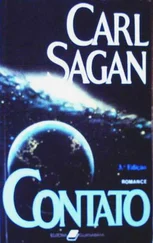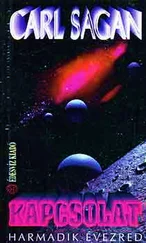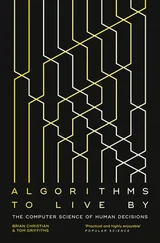Carl Sagan - Broca's Brain - The Romance of Science
Здесь есть возможность читать онлайн «Carl Sagan - Broca's Brain - The Romance of Science» весь текст электронной книги совершенно бесплатно (целиком полную версию без сокращений). В некоторых случаях можно слушать аудио, скачать через торрент в формате fb2 и присутствует краткое содержание. Жанр: Физика, на английском языке. Описание произведения, (предисловие) а так же отзывы посетителей доступны на портале библиотеки ЛибКат.
- Название:Broca's Brain: The Romance of Science
- Автор:
- Жанр:
- Год:неизвестен
- ISBN:нет данных
- Рейтинг книги:3 / 5. Голосов: 1
-
Избранное:Добавить в избранное
- Отзывы:
-
Ваша оценка:
- 60
- 1
- 2
- 3
- 4
- 5
Broca's Brain: The Romance of Science: краткое содержание, описание и аннотация
Предлагаем к чтению аннотацию, описание, краткое содержание или предисловие (зависит от того, что написал сам автор книги «Broca's Brain: The Romance of Science»). Если вы не нашли необходимую информацию о книге — напишите в комментариях, мы постараемся отыскать её.
Broca's Brain: The Romance of Science — читать онлайн бесплатно полную книгу (весь текст) целиком
Ниже представлен текст книги, разбитый по страницам. Система сохранения места последней прочитанной страницы, позволяет с удобством читать онлайн бесплатно книгу «Broca's Brain: The Romance of Science», без необходимости каждый раз заново искать на чём Вы остановились. Поставьте закладку, и сможете в любой момент перейти на страницу, на которой закончили чтение.
Интервал:
Закладка:
To the extent that scientists have not given Velikovsky the reasoned response his work calls for, we have ourselves been responsible for the propagation of Velikovskian confusion. But scientists cannot deal with all areas of borderline science. The thinking, calculations and preparation of this chapter, for example, took badly needed time away from my own research. But it was certainly not boring, and at the very least I had a brush with many an enjoyable legend.
The attempt to rescue old-time religion, in an age which seems desperately to be seeking some religious roots, some cosmic significance for mankind, may or may not be creditable. I think there is much good and much evil in the old-time religions. But I do not understand the need for half-measures. If we are forced to choose between them-and we decidedly are not-is the evidence not better for the God of Moses, Jesus and Muhammed than for the comet of Velikovsky?
CHAPTER 8

[The French encyclopedist] Diderot paid a visit to the Russian Court at the invitation of the Empress. He conversed very freely, and gave the younger members of the Court circle a good deal of lively atheism. The Empress was much amused, but some of her councillors suggested that it might be desirable to check these expositions of doctrine. The Empress did not like to put a direct muzzle on her guest’s tongue, so the following plot was contrived. Diderot was informed that a learned mathematician was in possession of an algebraical demonstration of the existence of God, and would give it him before all the Court, if he desired to hear it. Diderot gladly consented: though the name of the mathematician is not given, it was Euler. He advanced towards Diderot, and said gravely, and in a tone of perfect conviction: Monsieur, (a + b n )/n = x, donc Dieu existe; répondez! [Sir, (a + b n)/n = x. Therefore God exists; reply!] Diderot, to whom algebra was Hebrew, was embarrassed and disconcerted; while peals of laughter arose on all sides. He asked permission to return to France at once, which was granted.
AUGUSTUS DE MORGAN,
A Budget of Paradoxes (1872)
THROUGHOUT human history there have been attempts to contrive rational arguments to convince skeptics of the existence of a God or gods. But most theologians have held that the ultimate reality of divine beings is a matter for faith alone and is inaccessible to rational endeavor. St. Anselm argued that since we can imagine a perfect being, he must exist-because he would not be perfect without the added perfection of existence. This so-called ontological argument was more or less promptly attacked on two grounds: (1) Can we imagine a completely perfect being? (2) Is it obvious that perfection is augmented by existence? To the modern ear such pious arguments seem to be about words and definitions rather than about external reality.
More familiar is the argument from design, an approach that penetrates deeply into issues of fundamental scientific concern. This argument was admirably summarized by David Hume: “Look round the world: contemplate the whole and every part of it; you will find it to be nothing but one great machine, subdivided into an infinite number of lesser machines… All these various machines, even their most minute parts, are adjusted to each other with an accuracy which ravishes into admiration all men who have ever contemplated them. The curious adapting of means to ends, throughout all nature, resembles exactly, though it much exceeds, the production of human contrivance; of human design, thought, wisdom, and intelligence. Since therefore the effects resemble each other, we are led to infer, by all the rules of analogy, that the causes also resemble; and that the Author of Nature is somewhat similar to the mind of man; though possessed of much larger faculties proportioned to the grandure of the work which he has executed.”
Hume then goes on to subject this argument, as did Immanuel Kant after him, to a devastating and compelling attack, notwithstanding which the argument from design continued to be immensely popular-as, for example, in the works of William Paley-through the early nineteenth century. A typical passage by Paley goes: “There cannot be a design without a designer; contrivance without a contrivor; order without choice; arrangement without anything capable of arranging; subserviency and relation to a purpose, without that which could intend a purpose; means suitable to an end, and executing their office and accomplishing that end, without the end ever having been contemplated, or the means accommodated to it. Arrangement, disposition of parts, subserviency of means to an end, relation of instruments to a use, imply the presence of intelligence and mind.”
It was not until the development of modern science, but most particularly the brilliant formulation of the theory of evolution by natural selection, put forth by Charles Darwin and Alfred Russel Wallace in 1859, that these apparently plausible arguments were fatally undermined.
There can, of course, be no disproof of the existence of God-particularly a sufficiently subtle God. But it is a kindness neither to science nor religion to leave unchallenged inadequate arguments for the existence of God. Moreover, debates on such questions are good fun, and at the very least, hone the mind for useful work. Not much of this sort of disputation is in evidence today, perhaps because new arguments for the existence of God which can be understood at all are exceedingly rare. One recent and modern version of the argument from design was kindly sent to me by its author, perhaps to secure constructive criticism.
NORMAN BLOOM is a contemporary American who incidentally believes himself to be the Second Coming of Jesus Christ. Bloom observes in Scripture and everyday life numerical coincidences which anyone else would consider meaningless. But there are so many such coincidences that, Bloom believes, they can be due only to an unseen intelligence, and the fact that no one else seems to be able to find or appreciate such coincidences convinces Bloom that he has been chosen to reveal God’s presence. Bloom has been a fixture at some scientific meetings where he harangues the hurrying, preoccupied crowds moving from session to session. Typical Bloom rhetoric is “And though you reject me, and scorn me, and deny me, YET ALL WILL BE BROUGHT ONLY BY ME. My will will be, because I have formed you out of the nothingness. You are the Creation of My Hands. And I will complete My Creation and Complete My Purpose that I have Purposed from of old. I AM THAT I AM. I AM THE LORD THY GOD IN TRUTH.” He is nothing if not modest, and the capitalization conventions are entirely his.
Bloom has issued a fascinating pamphlet, which states: “The complete faculty of Princeton University (including its officers and its deans and the chairmen of the departments listed here) has agreed that it cannot refute, nor show in basic error the proof brought to it, in the book, The New World dated Sept. 1974. This faculty acknowledges as of June 1, 1975 that it accepts as a proven truth THE IRREFUTABLE PROOF THAT AN ETERNAL MIND AND HAND HAS SHAPED AND CONTROLLED THE HISTORY OF THE WORLD THROUGH THOUSANDS OF YEARS.” A closer reading shows that despite Bloom’s distributing his proofs to over a thousand faculty members of Princeton University, and despite his offer of a $1,000 prize for the first individual to refute his proof, there was no response whatever. After six months he concluded that since Princeton did not answer, Princeton believed. Considering the ways of university faculty members, an alternative explanation has occurred to me. In any case, I do not think that the absence of a reply constitutes irrefutable support for Bloom’s arguments.
Читать дальшеИнтервал:
Закладка:
Похожие книги на «Broca's Brain: The Romance of Science»
Представляем Вашему вниманию похожие книги на «Broca's Brain: The Romance of Science» списком для выбора. Мы отобрали схожую по названию и смыслу литературу в надежде предоставить читателям больше вариантов отыскать новые, интересные, ещё непрочитанные произведения.
Обсуждение, отзывы о книге «Broca's Brain: The Romance of Science» и просто собственные мнения читателей. Оставьте ваши комментарии, напишите, что Вы думаете о произведении, его смысле или главных героях. Укажите что конкретно понравилось, а что нет, и почему Вы так считаете.
